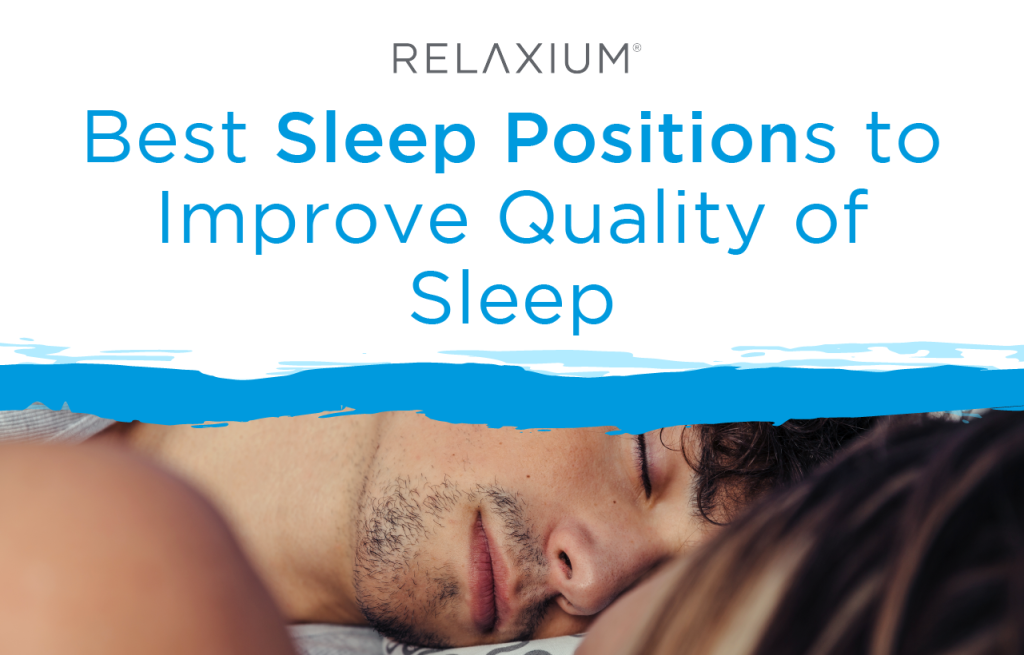Sleep is a crucial part of our lives. Did you know that the positions in which you sleep can impact the overall quality of sleep you’re getting each night? It’s important to recognize that each position impacts your sleep differently. There are various different sleep positions that people adopt when they are going to bed. You may prefer to sleep on your side, back, or stomach. Each of these positions comes with advantages and disadvantages to our health and sleep quality. In this blog, we will explore the different sleep positions so you can decide which works best for you to get a good night’s sleep!
Overview of sleep positions
As mentioned before, the most common sleep positions are side, stomach, and back sleeping.
Side Sleeping
Side sleeping involves sleeping on either side of the body, often with legs bent and slightly inwards toward the chest. Sleeping on your side typically makes breathing easier, and reduces the risk of snoring and sleep apnea. This position has also been shown to improve stomach digestion by keeping the stomach acid from flowing back into the throat. Sleeping on your side can also help reduce overall back pain, as it provides temporary relief. Another benefit of side sleeping is that it is especially helpful for pregnant people. This is due to the fact that side sleeping improves blood flow to the uterus, which ultimately benefits the baby. Despite all of these benefits to side sleeping, it also can bring upon disadvantages to the body.
Back Sleeping
Another common sleeping position is laying on your back, facing upwards. Back sleeping, also known as supine sleeping, has various benefits. Healthline describes these amazing benefits as: keeping your spine aligned, reducing tension headaches, reducing pressure and compression on the chest, relieving sinus buildup, and preventing wrinkles and irritation on your face. It can also help alleviate acid reflux symptoms, as the head is in a neutral position, keeping stomach acid from flowing towards the throat. While sleeping on your back comes with various benefits, it does have some negative effects as well. Unfortunately, back sleeping often makes snoring and sleep apnea worse. This is especially true for individuals who are overweight. It may be beneficial to slightly elevate your head to try and relieve snoring symptoms, but switching sleeping positions altogether may be best.

Stomach Sleeping
Stomach sleeping, also known as prone sleeping, is another common position individuals use to get a good night’s rest. In this position an individual will lay face down, with their head often turned to the side. This sleeping position has been known to reduce symptoms of snoring and sleep apnea, since it keeps the airways more open. Ultimately, sleeping on your stomach has more disadvantages than advantages. It can lead to discomfort and pain due to the strain and stress placed on the neck. This sleeping position can also lead to poor digestion, which causes acid reflux and heartburn. The Sleep Foundation reports that stomach sleeping may even cause misalignment of the spine. If you still favor stomach sleeping regardless of the disadvantages, it is recommended to use a flat pillow or no pillow at all to help minimize back and neck strain.

Other sleeping positions include: fetal position (curled up onto one side), log position (lying on one side with arms and legs straight), soldier position (lying on the back with arms straight by sides), starfish position (lying on the back with arms raised above head), freefall position (lying on the stomach with the head turned to one side) and hugging pillow position (lying on the side with a pillow hugged close to the chest).
Each sleeping position has its own disadvantages and advantages. It is up to the individual to decide which works best for themselves. It’s also important to note that choosing high quality pillows and mattresses will also improve your overall sleep quality, no matter which position you decide to sleep in. By paying attention to our sleep positions, we can ensure a good night’s sleep and wake up feeling refreshed and energized.

Relaxium Sleep
No matter what sleeping position you choose, there is still a chance that you may struggle with sleeplessness. Consider adding Relaxium Sleep to your routine in order to avoid this! Relaxium Sleep is a safe, effective, and drug-free supplement that will surely improve your overall sleep quality. This life-enhancing sleep aid has been designed to help you fall asleep faster, stay asleep longer, and wake up feeling refreshed and alert. Relaxium Sleep’s triple-action formula is also designed to help regulate the sleep cycle, relax the body, and calm the mind.
Try Relaxium sleep for yourself and experience all of the amazing benefits of a good night’s sleep. Use promo code RELAXBLG28 at checkout today to get it for only $28.88!
At Relaxium, we have a simple mission in mind – to create affordable, safe, and effective supplements. Through extensive research, we created four life enhancing supplements: Relaxium Sleep, Relaxium Calm, Relaxium Immune Defense, and Relaxium Focus Max. We use a perfect synergistic blend of ingredients in our products to ensure results. If you are interested in trying our Relaxium products, click here for more information!
To restful and healthy days ahead,
The Relaxium Team
*These statements have not been evaluated by the Food & Drug Administration. This product is not intended to diagnose, treat, cure, or prevent any disease.
Sources:
Side Sleeping: Which Side is Best and How To Do It (sleepfoundation.org)
8 Reasons Sleeping on Your Back May Solve Your Sleep Issues (healthline.com)
Sleeping On Your Stomach – Is it Bad for You? (sleepfoundation.org)

